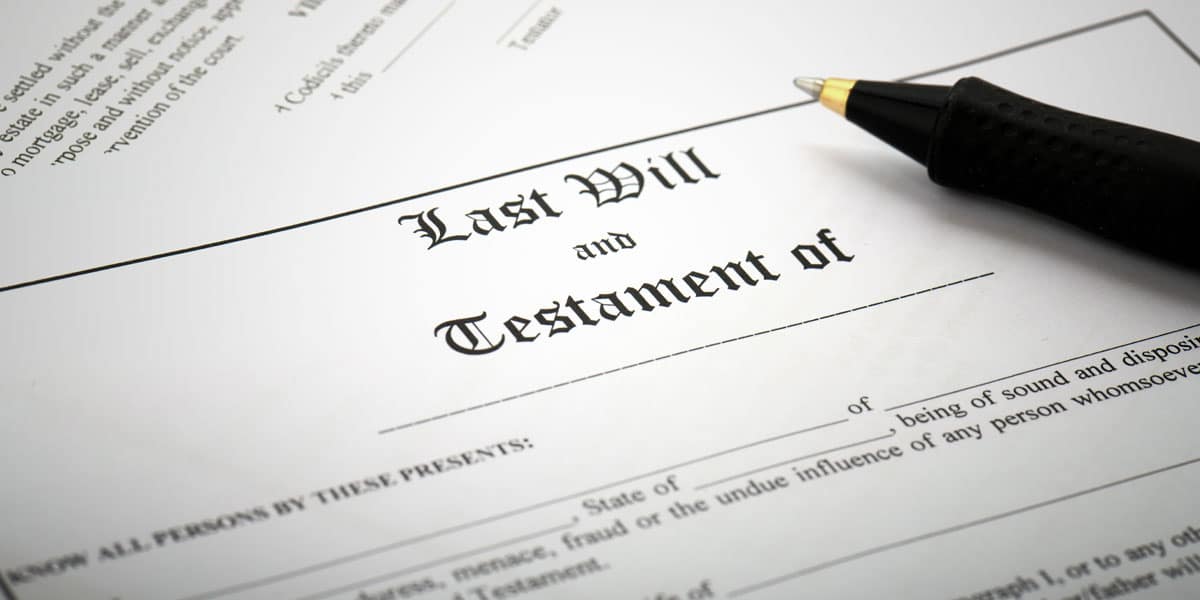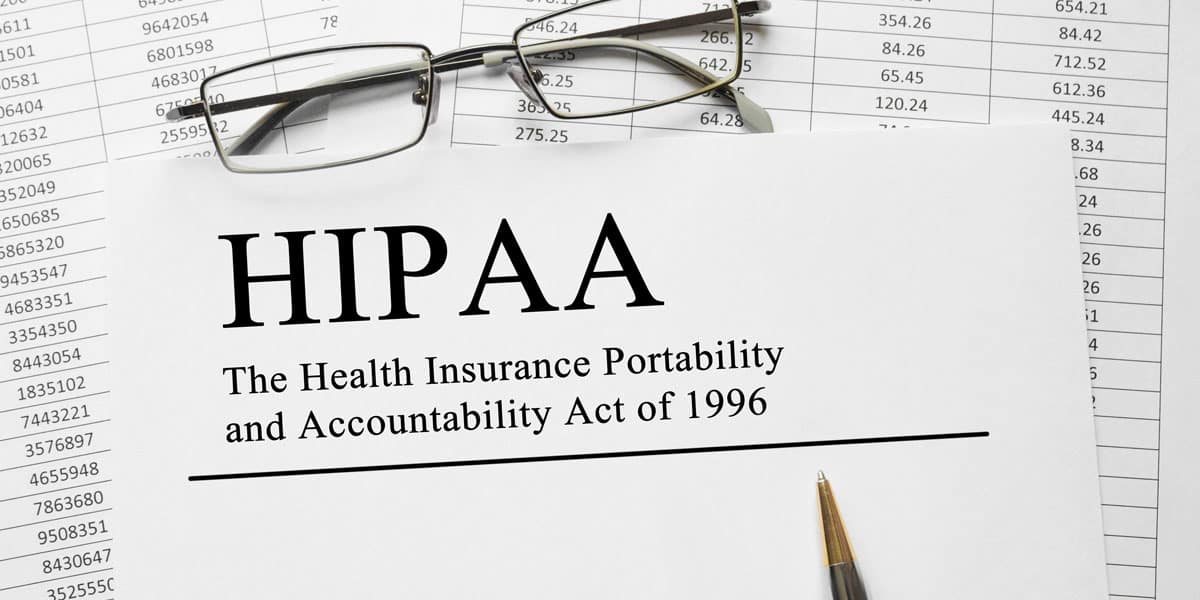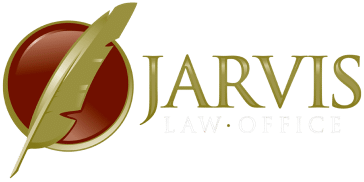As we age, planning for the future becomes increasingly crucial to ensure our wishes are fulfilled and our loved ones are protected. Here at Jarvis Law, we understand the complexities that can arise when navigating the ten essential legal documents every senior should have.
With this blog article, we’ve created a checklist of 10 important legal documents every Ohio senior should consider. From Living Wills to Digital Asset Inventories, these documents collectively create a comprehensive plan to address various aspects of your life. They can safeguard your financial matters, inform medical decisions, secure your estate plan, and even provide direction for your digital legacy.
Having a solid understanding of each document and working with a knowledgeable elder law attorney like Jarvis Law can help protect your interests into your golden years and beyond.

1. Last Will and Testament
A legal Will, also known as a Last Will and Testament, is a legally binding document that outlines the distribution of a person’s assets, property, and possessions after their death. This critical document allows individuals to express their final wishes regarding their estate.
A legal Will also appoints an executor – an individual responsible for carrying out the testator’s (the person making the Will) final instructions and ensuring proper distribution of the estate.
Having a legal Will is particularly important for seniors as the chance of a medical emergency or sudden incapacitation increases. A properly executed legal Will can help minimize complications, delays, and unnecessary expenses associated with probate court proceedings. So, you see it is one of the most important documents a senior should have.

2. Durable Power of Attorney
As people age, the likelihood of encountering health issues and cognitive decline increases, which may ultimately hinder their ability to manage their affairs properly.
A Durable Power of Attorney (DPOA) is a legal document that allows someone to appoint a trusted individual to make important decisions on their behalf should they become incapacitated or unable to manage their affairs. This can include advance directives related to financial transactions, legal matters, and even personal affairs.
The importance of having a Durable Power of Attorney for seniors cannot be overstated.
Without a Durable Power of Attorney in place, families may face lengthy and costly court proceedings to establish guardianship or conservatorship over their loved ones. A Durable Power of Attorney provides a proactive solution by preemptively entrusting decision-making authority to someone they trust when they are still in good mental and physical health.

3. Health Care Power of Attorney
A Health Care Power of Attorney, also known as a Medical Power of Attorney, allows individuals to appoint someone they trust to make health care decisions on their behalf. The appointed individual becomes the person’s health care agent.
By designating a Health Care Proxy, individuals can ensure that their wishes regarding medical treatment, duration of medical intervention, and end-of-life care are based on their preferences.
A senior who becomes incapacitated may be unable to communicate their desires concerning their wishes, which could lead to unwanted treatments or prolonged suffering. By designating a trusted individual as their health care agent, seniors can rest assured that their designated representative will act according to their expressed wishes and values and advocate with health care providers on their behalf.

4. Living Will
A Living Will is a legal document that outlines an individual’s medical treatment preferences if they cannot communicate these decisions themselves. It details the specific types of medical care one would want to receive if they are incapacitated, terminally ill, on life support, or in a persistent vegetative state.
This ensures that personal wishes regarding end-of-life care are followed, preventing family disputes and potential conflicts with medical providers.
Not only does a Living Will minimize emotional stress for loved ones who might be unsure about the course of action to take, but it also offers seniors greater autonomy in managing their end-of-life care and greater peace of mind in knowing their advance directives will lessen the worry and pain of survivors.

5. HIPAA Authorization
The Health Insurance Portability and Accountability Act (HIPAA) is a federal law that safeguards the privacy and security of patients’ protected health information (PHI).
A HIPAA Authorization is a legal document granting healthcare providers permission to use and disclose a patient’s protected health information for purposes other than treatment, payment, and healthcare operations.
A HIPAA Authorization allows the senior’s chosen representatives to access critical medical records necessary for making informed decisions.
In addition to facilitating better cooperation among those involved in a senior’s care, having HIPAA Authorization helps protect their privacy rights while upholding the guidelines set forth by federal law. It ensures that only authorized individuals can access the senior’s PHI and prevents mishandling or misusing sensitive medical documents.

6. Trust Documents
Trust Documents are a vital part of estate planning in legal terms, referring to the written documentation that outlines the specifics of a trust. A trust is a legal arrangement that allows one party, known as the trustor or grantor, to transfer property or assets to another party, known as the trustee.
The trustee then holds and manages those assets on behalf of one or more beneficiaries, who will ultimately benefit from the assets within the trust. Trust documents outline all the details related to the creation, administration, and termination of a trust and can come in various forms depending on the purpose of the trust.
The importance of Trust Documents for seniors in Ohio lies in their ability to provide security, flexibility, and control over their financial affairs and final wishes. Properly executed trust documents allow seniors to protect their assets from claims by creditors and pass those assets directly to their intended beneficiaries without going through probate court.
This can save considerable time and money for their heirs. Additionally, trusts can be designed to minimize tax liabilities and ensure that the grantor’s financial resources are utilized according to their preferences during their lifetime and after death.

7. Beneficiary Designations
A beneficiary designation is a legal provision in which an individual, referred to as the policyholder or account owner, designates one or more persons or entities as the recipients of certain assets upon the individual’s death. These assets may include life insurance proceeds, retirement accounts, or other financial investments.
In its most fundamental terms, a beneficiary designation outlines how specific assets within an individual’s estate should be distributed upon their demise, bypassing the probate process and ensuring a more expedited transfer of assets.
Accurate and up-to-date designations safeguard against potential disputes over asset distribution and help ensure that one’s final wishes are respected and adhered to. Moreover, proper beneficiary designations benefit seniors and protect surviving loved ones from unnecessary delays or complications in accessing inherited assets.

8. Property Deeds
Property deeds represent the transfer of ownership rights in a piece of real property from one party (the grantor) to another (the grantee). This kind of document, also known as a ‘title’ or ‘conveyance,’ establishes evidence of ownership, describes the property in detail, specifies the names of both involved parties, and indicates any relevant encumbrances, such as mortgages or liens.
Usually, the deed must be signed, notarized, and then recorded in the appropriate public records office. This ensures that the transaction is official and transparent, safeguarding the interests of both parties.
In the context of seniors, having property deeds prepared is crucial for several reasons. It’s an important aspect of your estate planning documents because it allows for a smooth transfer of estate ownership to one’s heirs, whether through a sale or by inheritance.
Property deeds provide essential evidence for resolving potential disputes related to ownership or boundaries among seniors’ family members or neighbors. Accurate preparation and recording of property deeds help prevent disagreements and costly litigation arising after the senior’s passing.
Knowing that all assets have been legally transferred according to the seniors’ wishes gives peace of mind to both seniors and family members, ensuring minimal complications during an already emotionally difficult period.

9. Medicaid Planning Documents
Medicaid Planning Documents are a set of legal documents that help individuals plan for their long-term healthcare needs, particularly seniors who may require assistance from Medicaid as they age.
These documents aim to protect individuals’ assets, ensuring they remain available to cover their healthcare and living expenses without disqualifying them from receiving Medicaid benefits. A carefully structured plan can help seniors gain the necessary financial assistance for long-term care while preserving their assets for themselves and their families.
As part of a comprehensive estate planning process, it is crucial for seniors to consult with an experienced elder care attorney with extensive knowledge of Medicaid planning. Complex rules and regulations surround the Medicaid benefits qualification process. And Medicaid benefits can significantly impact the quality and affordability of long-term care. So, working with the best attorneys for Medicaid Planning at Jarvis Law is essential.

10. Digital Asset Inventory
A Digital Asset Inventory, in legal terms, refers to a comprehensive list of an individual’s digital properties and access credentials. This inventory may include online banking accounts, social media profiles, email accounts, cloud storage services, digital photos and videos, cryptocurrency wallets, and other digital platforms housing important financial documents or personal information.
In the context of estate planning and management, having an updated and complete inventory of one’s digital assets can ensure a smooth transition of ownership and control over these assets upon the person’s demise or incapacitation.
The importance of preparing a Digital Asset Inventory for seniors lies in the growing reliance on technology in daily life. As more and more vital personal information is stored online, ensuring that family members or estate administrators can access this data becomes increasingly crucial.
Access to a detailed inventory helps minimize potential disputes during the probate process and ensures that no digital assets go unaccounted for or disused. Additionally, having this inventory ready aids in maintaining privacy by preventing unauthorized access to sensitive data.
As laws surrounding digital asset inheritance continue to develop, having a thorough Digital Asset Inventory is becoming an indispensable aspect of modern estate planning. Working with an experienced estate planning attorney at Jarvis Law can help ensure that your Digital Asset Inventory is up-to-date and comprehensive.

Start Planning Your Future Today
These ten essential legal documents are important to consider for Ohio seniors and their families. They ensure peace of mind and financial security and help navigate the complexities of estate planning, end-of-life care, and asset distribution.
At Jarvis Law, our team of experienced elder law attorneys understands seniors and their families’ unique legal challenges. We are committed to providing personalized guidance and support to help you create a comprehensive plan tailored to your needs and objectives.
Don’t wait until it’s too late to protect your family’s future. Reach out to Jarvis Law now and let our dedicated professionals assist you in preparing these important legal documents.
At Jarvis Law Office, we protect Ohio seniors and those who love them. We understand the importance of aging with dignity and on your terms. We offer FREE consultations, in-person workshops, and monthly webinars for Ohio seniors and their families.
With locations in Lancaster, Dublin, and St. Clairsville, contact us at (740) 653-3450 or complete our online form to schedule your consultation. You’ve worked hard all your life for your savings. Let’s work together to ensure your savings stay in your hands.
Copyright © 2023. Jarvis Law Office, P.C. All rights reserved.
The information in this blog post (“post”) is provided for general informational purposes only and may not reflect the current law in your jurisdiction. No information in this post should be construed as legal advice from the individual author or the law firm, nor is it intended to be a substitute for legal counsel on any subject matter. No reader of this post should act or refrain from acting based on any information included in or accessible through this post without seeking the appropriate legal or other professional advice on the particular facts and circumstances at issue from a lawyer licensed in the recipient’s state, country, or other appropriate licensing jurisdiction.
Jarvis Law Office, P.C.
904 N. Columbus Street
Lancaster, OH 43130
(740) 653-3450
https://www.jarvisfirm.com





